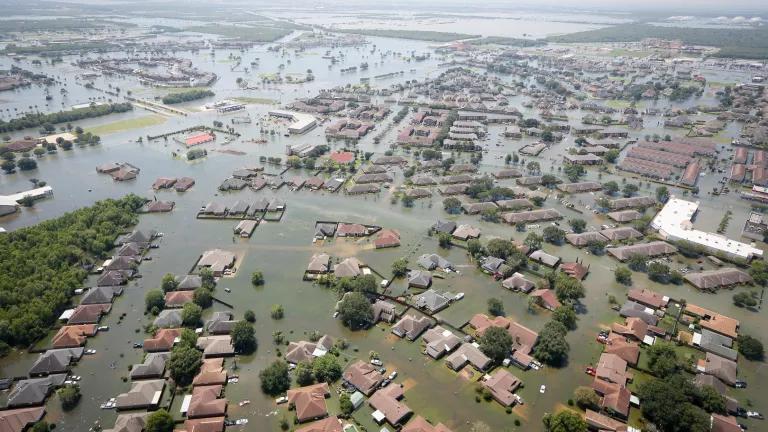Global Standard Setter Considering Climate Risk Disclosures for Banks
The Basel Committee on Banking Supervision (BCBS) is considering a disclosure framework for banks' climate-related financial risks.

In the evolving landscape of financial regulation, incorporating climate-related financial risks into banks' risk management practices has emerged as a critical mechanism to ensure the safety and soundness of their operations. In November, the BCBS issued a consultation on a proposed climate-related financial risk disclosure framework for banks.
In comments NRDC filed on the proposal, we recognize that the integration of these risks into bank risk management frameworks marks a significant stride towards the overall financial stability of the sector and financial system, and emphasize that the framework must ensure a transparent, standardized approach to climate risk disclosure, which is currently lacking in detail and comparability.
Why Climate Risk Disclosure Matters
The financial implications of climate change are profound, affecting banks through micro- and macroeconomic channels. These include physical risks, such as extreme weather events, and transition risks associated with the shift to a low-carbon economy. The proposed disclosure framework aims to shine a light on these risks, offering both quantitative and qualitative insights into how banks are exposed and how they manage these challenges.
For banks, this means managing risks more effectively and guiding them in understanding the intricacies of climate risk as it relates to traditional financial risks. Such disclosures are not merely regulatory tick-boxes but vital tools for ensuring that banks' operations, investments, and credit portfolios are resilient in the face of climate change.
Benefits of Enhanced Disclosure
The benefits of integrating climate-related financial risks into the bank regulatory framework are manifold:
- Market Transparency: Standardized reporting requirements enable investors, depositors, and other stakeholders to make informed decisions by comparing banks' climate risk exposures and mitigation strategies.
- Improved Risk Management: Encouraging banks to openly disclose their climate risks fosters a culture of proactive risk management and adaptation.
- Regulatory Oversight: Enhanced disclosures provide regulators with critical insights, aiding in the oversight process to ensure the financial system's stability.
This transformative approach not only holds banks accountable but also propels the entire financial sector towards greater resilience and stability.
The Global Perspective and Future Directions
BCBS should place critical importance of harmonizing new requirements with global disclosure standards, such as those already set by the International Sustainability Standards Board (ISSB). In addition to facilitating bank disclosures across different jurisdictions, this alignment would help to ensure consistency and reliability in disclosures, facilitating better comparison and understanding of banks' climate risks across borders.
Moreover, the final framework should take account of broader social implications, encouraging the incorporation of measures to mitigate potential adverse impacts on vulnerable communities. This inclusive approach would highlight the necessity of a balanced transition, where financial stability does not come at the expense of social equity.
Transition plans and qualitative disclosures about governance, strategy, and risk management can play a crucial role in this framework. They not only provide stakeholders with insights into a bank's climate strategy and commitments but also incentivize banks to earnestly address climate risk. However, the potential for "greenwashing" necessitates vigilant regulatory oversight to ensure these disclosures genuinely reflect banks' climate actions and strategies.
Conclusion
Failing to implement a robust framework for climate risk disclosure would leave financial institutions—and the broader financial system—vulnerable to unquantified and unmanaged climate-related financial risks. The proposed framework for climate-related financial risk disclosure represents a critical step in protecting the stability the financial sector and global financial system in the face of climate change.
As we move forward, the focus must remain on enhancing transparency, accountability, and inclusivity within the financial sector. By doing so, we can ensure that the banking industry not only withstands the challenges posed by climate change but can also play a pivotal role in the global transition to a sustainable economy.



